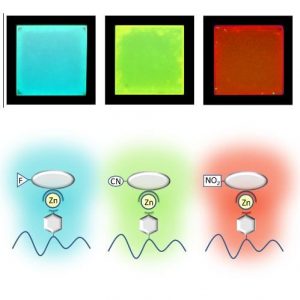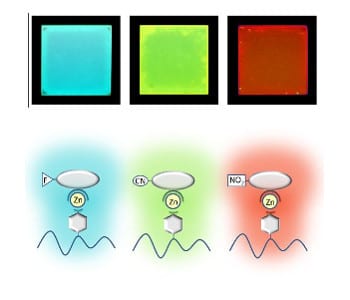Organic materials for photonics and optoelectronics have attracted much interest in recent years. Among them,  polymers containing transition metal complexes (metallopolymers) have been widely investigated for applications in light emitting devices, in particular polymers containing iridium or ruthenium complexes. However, more recently many researches have been focusing their attention on complexes of low cost, more abundant and non-toxic metals, such as zinc.
polymers containing transition metal complexes (metallopolymers) have been widely investigated for applications in light emitting devices, in particular polymers containing iridium or ruthenium complexes. However, more recently many researches have been focusing their attention on complexes of low cost, more abundant and non-toxic metals, such as zinc.
At the University of Naples Federico II and at the Ben-Gurion University of the Negev, researchers are working on the physics and chemistry of zinc(II) complexes with multidentate conjugated ligands. These compounds feature variable nuclearity and symmetry, and a light emission strongly dependent on the coordination environment.
The research team recently prepared metallopolymers by chemically grafting zinc(II) complexes onto commercial polyvinylpyridine. They obtained processable, homogeneous, stable and soluble materials through an easy synthetic route. Phase separation or undesirable local structuring often associated with doped polymeric systems could be avoided.
By varying the tridentate ligand structure and the grafting concentration, the photoluminescence performance of the thin solid films could be tuned in both brightness and colour. Intense emission with unprecedented photoluminescence quantum yield was observed. An effective colour tuning of the emission from blue to red was evidenced depending on the strength of the electron acceptor group on the tridentate ligand.
The noteworthy emission performance makes these zinc based metallopolymers suitable for photonic devices.

















